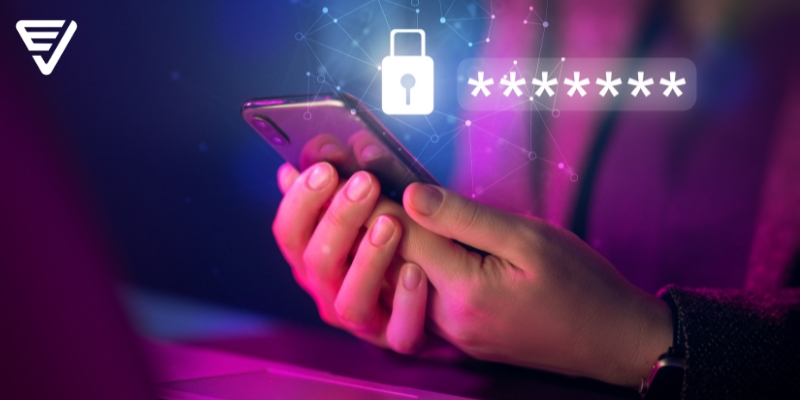
Addressing Security Concerns In Mobile App Development
In the digital world, mobile apps are seen to upgrade constantly as an integral part of our lives. It works as a purpose of communication and entertainment to boost productivity and e-commerce. The increased usage of these apps brings the question of heightened need for security. With the countless incidents of data breaches and cyberattacks, it’s crucial for developers to give security a priority throughout the mobile app development lifecycle. With this blog, you’ll explore various security concerns in mobile app development and also get some inputs on how to cater them effectively.
Security Concerns in Mobile App Development
Security concerns in mobile app development includes protecting user’s data, giving them secured authentication and maintaining robust code. It includes securing communication with external APIs, device security, respecting user’s privacy and giving regular updates to cover up possible vulnerabilities. Following these practices gives you the user's trust and safeguards you against evolving cybersecurity threats.
1. Data Encryption
Protection of data is a paramount concern in mobile app development. It should safeguard sensitive information of users like personal data, payment details and login credentials. To get this, techniques like AES for data at rest and transit should be applied by developers. Protocols like HTTPS are also vital to implement secure communication to shield data during transmission. Data encryption builds user’s trust and ensures that they comply with the rules. If there is a breach encountered, encrypted data remains unintelligible to unauthorized parties.
2. Secure Authentication
Proper authentication is required to ensure that only authorized users can access the app’s features and data. To add all the layers of security - Multi-Factor Authentication (MFA) and OAuth should be integrated. Moreover, they should also avoid storage of passwords in plain text and instead use salted and hashed passwords to protect credentials of users. Strong authentication mechanisms thwart unauthorized access and also enhances users' confidence to entrust users with their accounts that they are well-protected.
3. Code Security
Writing a secured code is important to mobile app security. Developers need secure coding practices to conduct regular code reviews. They should also implement tools and practices like static code analysis and dynamic application testing to identify and rectify vulnerabilities. When they do that, there is a minimized risk of common vulnerabilities like injection attacks and buffer overflows to ensure that the app’s robustness is in the face of determined attackers.
4. Secure APIs
Mobile apps often relied on external APIs to fetch data or to perform specific functions. Prevention of attacks like SQL injection, Cross-Site Scripting (XSS) and Cross-Site Request Forgery (CSRF) should be well secured by the API. there should be proper authentication and authorization checks of the data that has been exchanged with APIs should be validated and sanitized to prevent all the malicious input. A secure ecosystem is fostered by implementing secure APIs to protect the app and other external services that are connected with it.
5. Device Security
Mobile devices themselves can be vulnerable to possible threats related to security. Hence, it’s important for app developers to address these concerns. Developers should also ensure that the app does not store sensitive data locally, and if it does… its security should be encrypted. Additionally, developers also need to be cautious about app permissions, ensuring that apps only request necessary permissions and explanations to users about why these permissions are needed in the first place. By blistering the device's security, developers need to have an additional security layer of protection, to recognize that the app security extends to the device it runs at.
6. Secure Storage
Sensitive data should be safely stored on devices. Developers should utilize the device’s built-in security mechanics like the KeyStore on Android or the Secure Enclave on iOS, to store encrypted keys and sensitive data. Furthermore, locally stored data should be encrypted. Secure storage practices ensure that users and their data are secured even if a situation of loss or theft of device occurs. All these practices enhance the app’s trustworthiness.
7. Regular Updates
Security of mobile apps is an ongoing process. Developers need to stay vigilant by monitoring security news and vulnerabilities that can be related to their app’s technology stack. There should be regular releases of updates to patch the security holes to add new security features and maintain the overall security posture of the app. When the updates are consistent, it showcases a developer’s commitment to security and demonstrates a proactive stance against threats that emerge.
8. User Privacy
Privacy concerns are raised in the forefront of app development. All the regulations of GDPR (General Data Protection Regulation) and CCPA (California Consumer Privacy Act) should be followed by developers to protect the data and provide transparent data handling policies. This includes obtaining user consent for data collection and to allow users to control them. You get all the compliance with legal requirements by respecting user privacy which also fosters a sense of trust as the users feel in control with their personal information.
9. Penetration Testing
Penetration testing or ethical hacking, is an essential part of security of the mobile app. Developers should regularly engage in testing their own apps or to employ third-party experts to identify weaknesses and vulnerabilities for any possible threats to users. Simulation of real-world attacks can be proactively addressed for security issues before other malicious actors exploit them. By practicing penetration testing, it serves as a proactive defense that allows developers to uncover and remediate vulnerabilities even before they are exploited by malicious actors.
10. Secure Communication
Secure communication is a key to protect data in transit. All communication with the app and the server should be well-encrypted with SSL/TLS protocols. To prevent man-in-the-middle attacks, developers should implement proper certificate validation. Along with encrypting data, ensuring that the parties involved are actually the one they claim to be is important to know in order to safeguard the integrity of data during transit.
Conclusion
Mobile app security should be a continuous effort throughout the development process and beyond it. Bring on regular updates, conduct security testing and adhere to best practices that ensure your mobile app remains resilient against emerging trends in the dynamic landscape of cybersecurity. After all, your mobile security is a testament to your commitments of providing a safe and reliable user experience.
You can also visit related blogs:


































































comments for "An Interview with Exavibes Services"
Leave a Reply